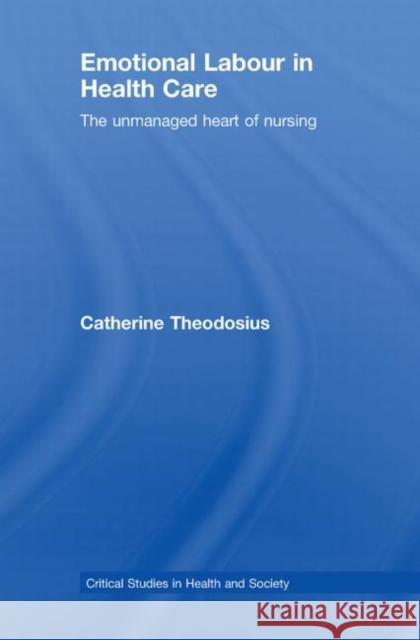Emotional Labour in Health Care : The unmanaged heart of nursing » książka
Emotional Labour in Health Care : The unmanaged heart of nursing
ISBN-13: 9780415409537 / Angielski / Twarda / 2008 / 248 str.
Based on original empirical research and narratives from qualified nurses, this book introduces the concept of emotional labour and its historical and political context. It provides an original, but easily recognisable typology, and emphasizes that it is a complex, messy, opaque emotion that drives emotional labour within the healthcare setting.
Do nurses still care? In today’s inflexible, fast-paced and more accountable workplace where biomedical and clinical models dominate health care practice, is there room for emotional labour?
Based on original empirical research, this book delves into personal accounts of nurses' emotion expressions and experiences as they emerge from everyday nursing practice, and illustrates how their emotional labour is adapting in response to a constantly changing work environment.
The book begins by re-examining Arlie Hochschild’s sociological notion of emotional labour, and combines it with Margaret Archer’s understanding of emotion and the inner dialogue. In an exploration of the nature of emotional labour, its historical and political context, and providing original, but easily recognisable, typology, Catherine Theodosius emphasises that it is emotion – complex, messy and opaque – that drives emotional labour within health care. She suggests that rather than being marginalised, emotional labour in nursing is frequently found in places that are hidden or unrecognised. By understanding emotion itself, which is fundamentally interactive and communicative, she argues that emotional labour is intrinsically linked to personal and social identity. The suggestion is made that the nursing profession has a responsibility to include emotional labour within personal and professional development strategies to ensure the care needs of the vulnerable are met.
This innovative volume will be of interest to nursing, health care and sociology students, researchers and professionals.











